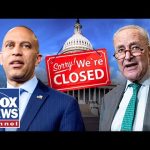New York City’s freshly elected mayor has sparked a renewed debate about the direction urban America is headed. Promising safety and prosperity during his campaign, the mayor’s tenure now reveals the classic socialist playbook at work: imposing lofty ideals while demanding control over every aspect of citizens’ lives. His approach, though sugar-coated with charm, threatens to burden the city with hefty taxes and an enforced minimum wage increase that could choke small businesses, the true backbone of New York’s economy.
The mayor’s push for a higher tax rate targeting wealthy residents seems poised to backfire. Rather than filling city coffers, this policy risks driving out skilled workers and entrepreneurs who fuel local growth. With fewer affluent taxpayers, economic pressure will shift onto smaller firms, already struggling under mounting regulations and costs. This setup inevitably weakens the very communities these social policies claim to uplift, as families face dwindling job opportunities and stifled innovation.
Veteran politicians like Chuck Schumer are feeling the heat as the new leadership embraces a more militant stance on transformation. Gone are the days of moderate debate; today’s politicians, led by youth-driven figures with radical agendas, demand total allegiance or resistance. This attitude fosters division rather than unity, sidelining experience and pragmatic governance in favor of ideological purity—an approach that often collapses under its own weight and erodes the social fabric.
Ironically, the practical improvements under previous administrations, such as efforts to lower gas prices and reduce grocery costs, have been overshadowed by the zealous calls for social justice that obscure real economic challenges. America’s cautionary experience with broad reforms like Obamacare reminds citizens that not all change leads to progress—some reforms lead to greater hardship and economic stagnation if unchecked.
As New York looks forward, the question remains: Will this glossy socialist promise translate into genuine prosperity, or merely deepen the cycle of disappointment? The city’s future hinges on whether leaders will prioritize real-world outcomes or cling to idealistic power plays. The stakes could hardly be higher as America watches to see if pragmatism or ideology will ultimately guide urban governance in these turbulent times.




